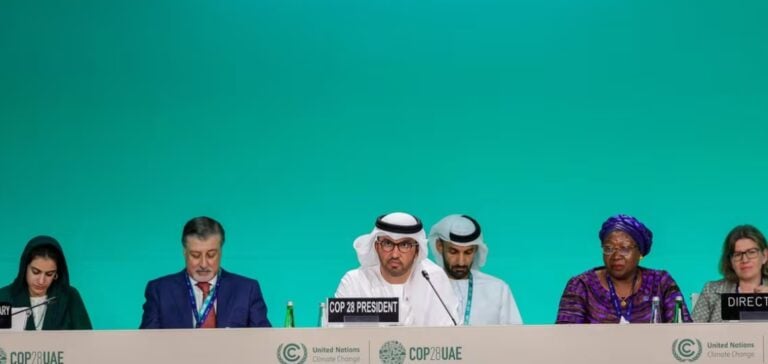The 28th United Nations Conference of the Parties (COP28) on climate change, which opened in Dubai, represents a key event in the history of climate negotiations. This crucial event is taking place against a backdrop of heightened tensions and high expectations for significant progress in the fight against climate change and the transition to more sustainable energy.
Issues and First Decisions
One of the first items on the conference agenda is the adoption of a fund to compensate the most vulnerable countries for loss and damage caused by climate change. This long-debated initiative marks a potential turning point in the way the international community approaches the question of responsibility and financial support in the fight against climate change.
Climate Diplomacy in Action
The United Arab Emirates, host of COP28, is playing a crucial role in facilitating these discussions. The event takes place on the site of the 2020 World Expo in Dubai, transformed for the occasion into a vibrant diplomatic hub. This conference, which has been compared to the historic COP21 in Paris, brings together delegates from all over the world to debate and formulate solutions to the climate emergency.
Challenges and Reviews
However, COP28 is not without controversy. Tensions arose over the presence and role of COP28 President Sultan Al Jaber, who is also CEO of the national oil company Adnoc. Criticism was raised about potential conflicts of interest, although these accusations were refuted by the organizers.
Outlook and expectations
COP28 is seen as a potential tipping point for global climate policies. The focus is on fossil fuels, with discussions expected to revolve around their gradual reduction. The role of COP28 in facilitating the transition to renewable energies and the implementation of sustainable development strategies is therefore of paramount importance.
COP28 in Dubai is shaping up to be a pivotal moment in the history of climate diplomacy. The decisions taken and commitments made here could shape the future of global climate policy, determining the course of the energy transition for years to come.






















